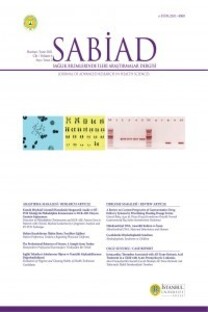EXOSOMES – A NEW FRONTIER IN CANCER THERAPY
Exosomes, also called exosome vesicles (EcVs), contain DNA, RNA (including mRNA, miRNA, and ncRNA), proteins, lipid layer molecules, metabolic enzymes, signal transduction molecules, and other components and are produced in the endosomes of almost all cells, tissues, and body fluids. As exosomal cargoes, they play key roles in signaling pathways, immune regulation, cellular development, carcinogenesis, and homeostasis, providing a potential portal for cell-free drug delivery systems. Exosomal components that vary from cell-to-cell and organ-to-organ, are used to evaluate a biological response. Thus, the variation in the exosomal components makes them promising candidates for biomarkers for cancer detection and diagnosis. Moreover, the recent advances in medicine have revealed that exosomes are capable of crossing the blood-brain barrier and transporting drugs. A growing number of studies have been conducted to understand the therapeutic potential of exosomes in cancer. Because exosomes alter the local and systemic environment for cancer cell development, inhibiting their release is an important treatment strategy. In addition to the targeted use of exosomes, there are also treatment approaches in cancer therapy in which exosomes are used directly for therapeutic purposes. However, previous studies show that exosomebased therapy is very promising. Nevertheless, further research is needed to determine unique biomarkers for clinical application. Therefore, the emerging therapeutic and regulatory potentials of exosomes in the field of cancer research are highlighted through a comprehensive literature review.
Anahtar Kelimeler:
Exosomes, extracellular vesicles, drug delivery, cancer, biomarkers
EXOSOMES – A NEW FRONTIER IN CANCER THERAPY
Exosomes, also called exosome vesicles (EcVs), contain DNA, RNA (including mRNA, miRNA, and ncRNA), proteins, lipid layer molecules, metabolic enzymes, signal transduction molecules, and other components and are produced in the endosomes of almost all cells, tissues, and body fluids. As exosomal cargoes, they play key roles in signaling pathways, immune regulation, cellular development, carcinogenesis, and homeostasis, providing a potential portal for cell-free drug delivery systems. Exosomal components that vary from cell-to-cell and organ-to-organ, are used to evaluate a biological response. Thus, the variation in the exosomal components makes them promising candidates for biomarkers for cancer detection and diagnosis. Moreover, the recent advances in medicine have revealed that exosomes are capable of crossing the blood-brain barrier and transporting drugs. A growing number of studies have been conducted to understand the therapeutic potential of exosomes in cancer. Because exosomes alter the local and systemic environment for cancer cell development, inhibiting their release is an important treatment strategy. In addition to the targeted use of exosomes, there are also treatment approaches in cancer therapy in which exosomes are used directly for therapeutic purposes. However, previous studies show that exosomebased therapy is very promising. Nevertheless, further research is needed to determine unique biomarkers for clinical application. Therefore, the emerging therapeutic and regulatory potentials of exosomes in the field of cancer research are highlighted through a comprehensive literature review.
Keywords:
Exosomes, extracellular vesicles, drug delivery, cancer, biomarkers,
___
- Wellek S, Blettner M. On the proper use of the crossover design in clinical trials: part 18 of a series on evaluation of scientific publications. Dtsch Arztebl Int. 2012;109(15):276-81.
- Yayın Aralığı: Yılda 3 Sayı
- Başlangıç: 2018
- Yayıncı: İstanbul Üniversitesi
Sayıdaki Diğer Makaleler
REAL WORLD EVIDENCE AND BIG DATA
S-100 PROTEIN EXPRESSION LEVELS AS A POTENTIAL PROGNOSTIC MARKER IN NEUROBLASTOMA
Gamze SANLAV, Burçin BARAN, Deniz KIZMAZOĞLU, Selen KUM ÖZŞENGEZER, Safiye AKTAŞ, Zekiye ALTUN, Nur OLGUN
APPLICATIONS OF TRANSCRIPTOMICS METHODS IN BREAST CANCER
LONG NON-CODING RNAs AND AUTOPHAGY IN OSTEOSARCOMA
Ayça COŞKUN, Hamza Malik OKUYAN
DATA SCIENCE, CANCER AND SEQUENCING ANALYSES
THE EFFECT OF SILENCING THE Tip60 GENE ON THE RESPONSE TO RADIOTHERAPY IN BREAST CANCER CELLS
Ece MİSER SALİHOĞLU, Bensu KARAHALİL, Sevgi AKAYDIN
Can MUFTUOGLU, Ufuk MERT, Emin TAVLAYAN, Milad ASADİ, Özlem ÖZKAYA AKAGÜNDÜZ, Ayşe CANER
DISSECTION OF T CELL ACTIVATION PHASES FOR CHECK POINT BLOCKADE IMMUNOTHERAPY
